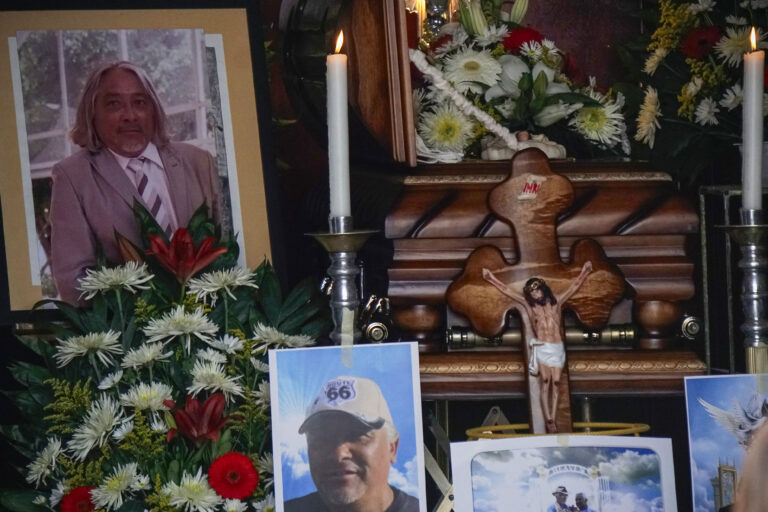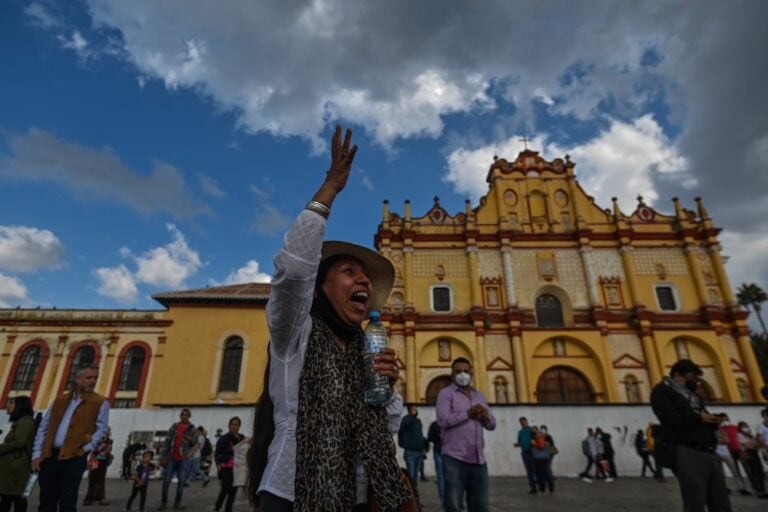(CENCOS/IFEX) – The following is an abridged translation of a 9 December 2008 CENCOS press release: Mexico D.F., 9 December 2008 (Cencos) – Amidst the incessant violence that journalists have been living with in Mexico, the Special Prosecutor for Crimes against Journalists (Fiscalía Especial para la Atención de Delitos Cometidos contra Periodistas, FEADP), which is […]
(CENCOS/IFEX) – The following is an abridged translation of a 9 December 2008 CENCOS press release:
Mexico D.F., 9 December 2008 (Cencos) – Amidst the incessant violence that journalists have been living with in Mexico, the Special Prosecutor for Crimes against Journalists (Fiscalía Especial para la Atención de Delitos Cometidos contra Periodistas, FEADP), which is in charge of defending and protecting journalists, has minimised the risks faced by journalists, therefore failing to uphold the objective for which it was created.
According to Octavio Orellana Wiarco, the head of the FEADP, Mexico is not the most dangerous country for journalists to work in.
In the presentation of the annual FEADP report, Orellano Wiarco maintained that “there is a mistaken perception that Mexico is the country where the largest number of homicides of journalists takes place. This is not true.”
The FEADP does not recognise the risks for press freedom in Mexico, even though these risks have been reported, condemned and documented by both Mexican and international civil organisations.
The assassinations of journalists continue to go unpunished, and of the 274 that the FEADP has recorded, only in the case of journalist Alejandro Zenón Fonseca de Tabasco, who was killed while carrying out a campaign against organised crime, have two suspects been detained. Moreover, even in this case, his murder is said to only have a “probable connection” with his journalistic profession, according to the report.
The report recognizes the murders of 13 journalists. However, the absence of a broad definition of “journalist” allows the FEADP to discount many typical cases. Of these 13 cases, only two fell under the jurisdiction of the FEADP.
In the case of the assassination of Teresa Bautista Merino and Felicitas Martínez Sánchez, the FEADP minimized their role as journalists by noting that they had “broadcast greetings and songs on community radio”. This was included in the FEADP report despite the fact that on 23 April 2008, the two, who were from the Triqui indigenous community, were posthumously awarded national journalism prizes for their work at La Voz community radio station.
The FEADP also considers some disappearances of journalists, such as that of journalist Mauricio Estrada Zamora, to have only tenuous links to their professional work.
The FEADP, which was created in 2005 and has only limited resources, has reported poor results in 2008 in its efforts to defend Mexican journalists. The Mexican State has continued to fail in its obligations even amidst the calls for justice from victims and their families.
The exponential increase of violence against journalists and the inability of the State to do something effective about the situation highlights victims’ lack of access to justice as well as the need for guarantees for press freedom and freedom of expression in Mexico.


